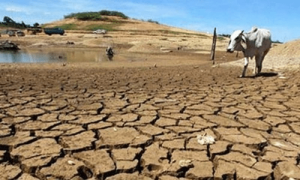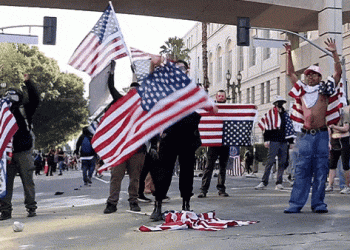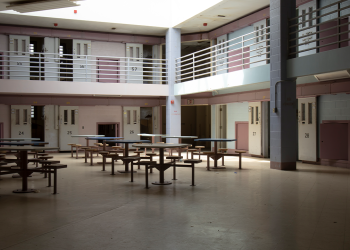In an age when cynicism has become the currency of politics and empathy a vanishing virtue, the Global Sumud Flotilla has sailed against the tide-literally and morally. It is more than a fleet of boats; it is a fleet of conscience. In the face of the devastating siege and relentless bombardment of Gaza, this flotilla of more than forty vessels carrying volunteers and aid from forty-four countries symbolizes what humanity can still be: compassionate, courageous, and steadfast.
The word “Sumud”, Arabic for steadfastness, is not new to the Palestinian lexicon. It has for decades embodied the moral strength of a people who refuse to surrender their dignity despite dispossession and destruction. But in 2025, the world witnessed a remarkable transformation of Sumud-from a local ethos of resistance to a global act of solidarity. The flotilla carried not just food and medicine, but faith in the idea that decency and empathy are not yet extinct.
Rarely in modern history has global civil society coordinated such a complex and courageous humanitarian mission without state sponsorship. The Global Sumud Flotilla was launched from ports in Spain, Italy, Greece, and Tunisia, converging in the Mediterranean on a course toward the besieged shores of Gaza. On board were doctors, parliamentarians, clergy, students, engineers, artists, and environmentalists-ordinary people from across six continents united by one extraordinary conviction: that indifference in the face of genocide is complicity.
The flotilla was neither a stunt nor a mere protest. It was a civilizational statement-a reminder that humanity, when cornered by cruelty, can still rise above divisions of race, religion, and nationality. In a time when the world’s most powerful governments have turned their gaze away from Gaza’s suffering, the flotilla reasserted that conscience does not require permission to act.
The logistics behind the flotilla were as impressive as its moral force. Coordinated by the Freedom Flotilla Coalition and allied networks such as March to Gaza and Maghreb Sumud, the mission involved 42 vessels-some carrying humanitarian cargo, others journalists, medics, and legal observers. Their cargo may seem modest-flour, rice, baby formula, medicines, prosthetics, and portable water-purification kits-but their moral tonnage was immeasurable.
The participants hailed from forty-four countries, representing every major faith and culture. There were Scandinavians and South Africans, Japanese and Tunisians, Australians and Pakistanis. Among them was Greta Thunberg, the young environmental activist whose moral clarity has long challenged political apathy. Together, they formed a floating parliament of humanity-multilingual, multicultural, and united not by ideology but by empathy.
For decades, Israel’s blockade of Gaza has not only been physical but psychological. The people of Gaza have been isolated, demonized, and denied even the empathy of the world. The flotilla broke that wall, if not with weapons, then with witness. Predictably, Israeli authorities denounced the flotilla as a “provocation” and accused its organizers of aiding “terrorists.” But the world saw something very different. The live-tracking of vessels, the onboard cameras streaming in real time, and the testimonies of parliamentarians and human-rights monitors transformed this journey into a digital act of defiance.
The courage of the flotilla lies not in its confrontation with gunboats but in its reclamation of moral language. In a world that increasingly equates power with righteousness, this voyage reaffirmed the principle that human life-not ideology-remains the ultimate moral reference point. Participants knew they risked arrest, deportation, and even death. Yet they sailed on. Among them were survivors of past flotillas, human-rights defenders, medical workers, and young volunteers whose only weapon was a belief that goodness is contagious.
The significance of the Sumud Flotilla extends far beyond the Mediterranean. It marks a watershed in how global solidarity movements operate in the digital age. This was not the traditional protest of placards and slogans; it was a meticulously organized act of transnational civil resistance, backed by technology, transparency, and legal accountability.
The flotilla’s emergence also exposes the paralysis of formal international institutions. The United Nations, the European Union, and the Arab League have all issued statements, yet none have opened a genuine humanitarian corridor to Gaza. When governments hesitate, global citizens must step forward. The Sumud Flotilla was precisely that step-a grassroots foreign policy of conscience.
Israel, too, stands at a moral crossroads. The interception and detention of humanitarian activists have earned it global criticism, even from its traditional allies. Yet Israel can still salvage a measure of dignity. It can release all detainees immediately, deliver the seized aid to Gaza’s starving population, and cooperate with international observers to ensure safe passage for future humanitarian efforts.
It is easy to drown in despair when watching Gaza’s destruction-children buried under rubble, hospitals without fuel, and families surviving on grass and brackish water. But despair, as history shows, is a luxury the oppressed cannot afford. The Sumud Flotilla sailed precisely to challenge that despair. Its message is not only for Palestinians, but for the human spirit itself. In the midst of genocide, it reminds us that moral clarity is not the privilege of the powerful but the duty of the humane.
As the Prophet Muhammad (peace be upon him) said: “None of you truly believes until he loves for his brother what he loves for himself.” And as Christ taught, “Blessed are the merciful, for they shall obtain mercy.” In the same spirit, the call of Moses to “love your neighbor as yourself” reverberates through the ages. Together, these prophetic words form the sacred triad of compassion-the eternal covenant of empathy that binds the children of Adam beyond creed and geography.
In the coming weeks, these boats may be forgotten by headlines, and the detainees may fade from news cycles. But history will remember the image of small vessels sailing toward a besieged shore with nothing but conscience in their sails. When future generations ask whether the world remained silent during Gaza’s darkest hour, the story of the Sumud Flotilla will stand as evidence that not all hearts were numbed, not all eyes were averted, and not all humanity was lost.
This flotilla did not break the siege of Gaza-but it did break the siege of hopelessness. In its wake, it has left a message that should echo across seas and borders alike: As long as there are people willing to risk comfort for compassion, the moral compass of civilization still points toward the light.
The post The Flotilla Sumud (steadfastness): A symbol of hope and human goodness appeared first on The Financial Daily.








